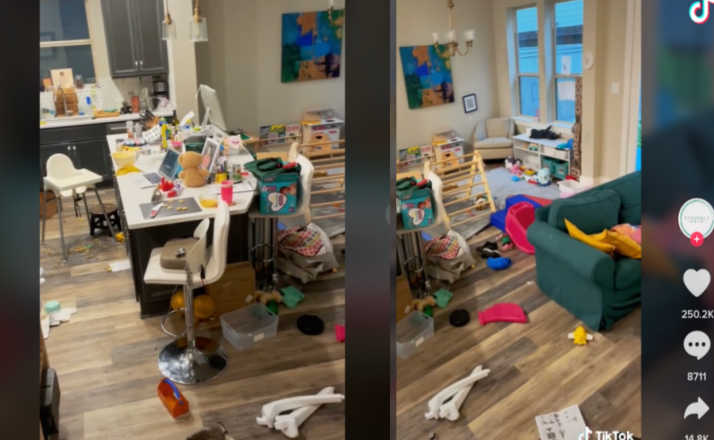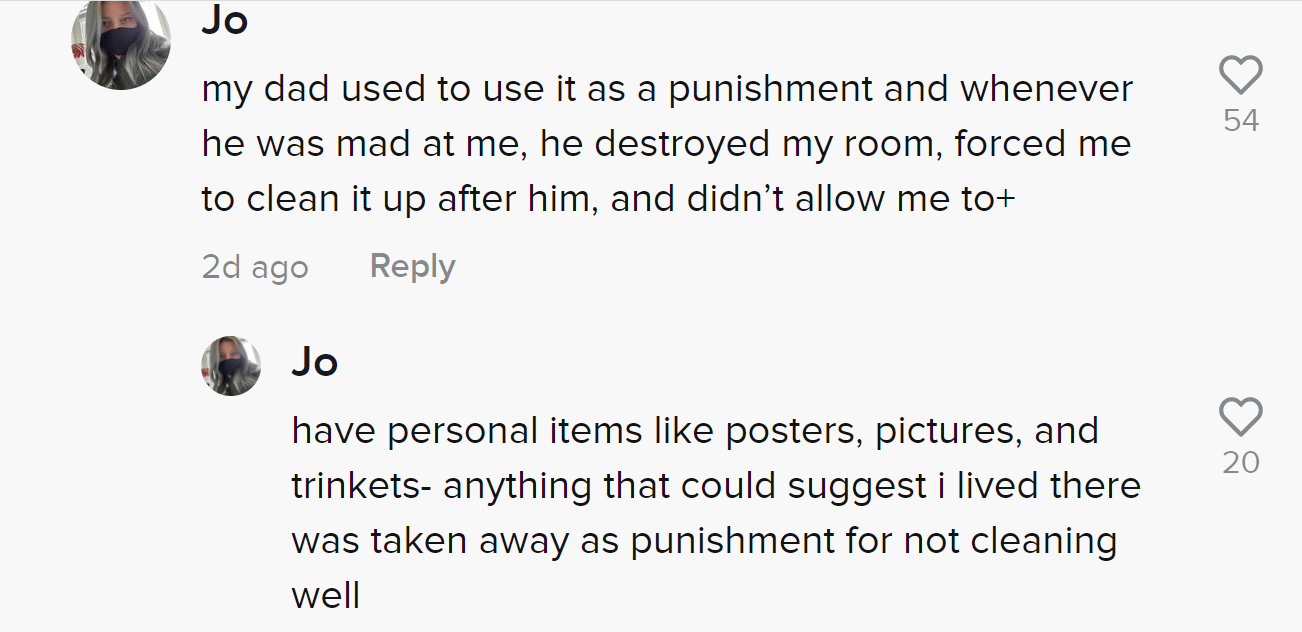We are constantly bombarded with images of “the perfect home.” Pristine spaces with clean counters and even cleaner floors. There is no clutter cluttering. No messes messing. No litter littering.
But the reality of actually living in a home, with little people, is vastly different.
There are constant messes to clean up, dishes to wash, toilets to scrub, mountains of laundry to tackle. There are meals to cook, snacks to prep, and counters to wipe.
And some days, living in a house that is LIVED IN can feel overwhelming and paralyzing. It can feel insurmountable to get a handle on the mess. And the mess almost always brings shame to the party.
But what if struggling to stay on top of the housework is not just about the mess? What if there is a more deeply rooted reason as to why it can feel so impossible?
Katherine Connell Davis is the face behind the TikTok handle @domesticblisters. She is a licensed therapist, mother, and a strong proponent for mental health.
In a TikTok video that has gone viral with almost 1M views, KC Davis explains the psychology behind why some people cannot or will not just “clean as they go” and it’s a message we all need to hear.
She captions her video with:
The video begins with the camera panning her open-concept living space. There are piles of stuff everywhere. The words “You are not lazy” flash across the screen.
Davis starts off by saying:
“I had a full and wonderful day with my kids today and I’m gonna do a big reset of the space because I plan to have a full and wonderful day again tomorrow.”
As she begins to pick up the clothes, bags, toys, and various miscellaneous items littered on the living room floor she launches into her explanation for :
“There are actually very real and valid reasons why some people cannot clean as they go (quote unquote) and there are also valid reasons why some people just prefer not to do that.”
She goes on to explain that there are several mental and neurological disorders that can wreak havoc on a person’s ability to start tasks especially if it requires multiple steps.

Other barriers include:
- mental and physical health issues that cause energy fatigue or pain.
- ADHD, which affects working memory problems. “Once somebody puts something down and walks away from it, they literally forget it exists until they see it again.”
- Post-traumatic stress stemming from child abuse or domestic partner abuse where cleaning was used as punishment or was the subject of abuse. Cleaning triggers the nervous system and leads to avoidant behaviors.
- Being unable to focus or bend.
- Believing that you are not worthy of a functional space.
- Experiencing a loss or a life transition that completely derails you, “robbing you of your normal abilities to cope or prioritize or focus.” (Like a pandemic, for example.)
Davis then states that everyone who struggles with mental, emotional, physical, or psychological issues that hamper their ability to keep a functional space deserves access to workable routines. Not judgment.
“All of these people deserve access to non-judgemental, compassionate, adaptive routines for keeping a functional space. They are not lazy or dirty or gross.”
She ends the TikTok by explaining why she shared her message and her messy house in the first place.
She says it has nothing to do with defending her mess to internet strangers and everything to do with sharing a message of compassion and hope.
“I don’t often go into specifics about why my house is messy that day because at the end of the day it doesn’t matter.
It’s not about me proving to some internet stranger that my house is messy for an acceptable reason.
It’s about getting a message of compassion and hope out there to anyone that struggles. Regardless of your level of functioning, you deserve kindness.”
@domesticblisters Mess is morally neutral and shame is the enemy of functioning. #strugglecare #findyourway #selfcompassion #cleantok
And people are here for it.
Over 7800 viewers took to the comment section and almost all of them can relate to her message.

Many thanked Davis for validating their experiences and making them feel seen.



Others talked about the childhood trauma that triggered their avoidant behavior.


And appreciated her switching up the narrative around cleaning:

In Davis’s words, “mess is morally neutral.” There is nothing wrong with being messy.
You are not better or worse as a person based on the cleanliness of your home.
Your worth is not found in gleaming appliances or dust-filled nooks and crannies. It is not based on whether or not you can keep the “perfect” house.
And if you happen to be one of those people who judge others based on the state of their home, Davis has these parting words just for you:
“If the sight of someone’s messy house really makes you unable to access the part of you that can be a decent human being perhaps you should think about seeing one (a counselor).”
This TikTok is just one in a number of videos that Davis shares to help people who are struggling to order, prioritize, and execute tasks.
She has an extensive repertoire of “How To” videos that cover everything from “5 Things Tidying Method” to “The Two Best Cleaning Supplies,” to “Habits & Sytems That Work.”
Her content is centered around the fact that you do not have to change who you are in order to have a functional home and life. You just need the right tools and routines to do so.
You can check out more of her videos on her TikTok channel here.












